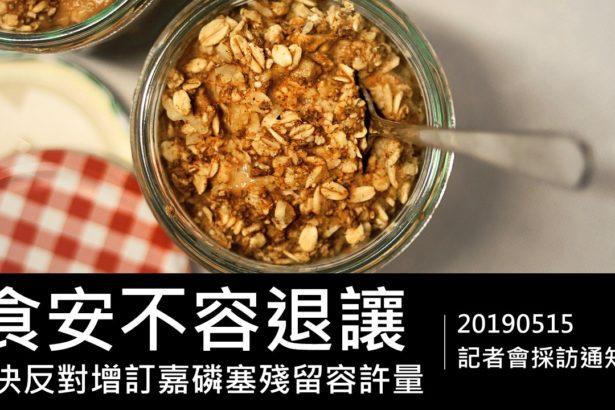What if the army and insects invade in autumn? Prevention and control methods of autumn military insects in southwest airstream after typhoon in Taiwan
Originally distributed in tropical and subtropical regions of America, autumn army insects spread rapidly to Asia within 2 years, Yemen, India, Bangladesh, Myanmar, Thailand and Sri Lanka in 107 years, and this year they moved to the mainland of China, with disasters reported in 11 provinces. Autumn army insects mainly harm gramineae plants, host plants range is very wide, including 76 families, 353 species, the main damage objects are corn, rice and sorghum, and the movement mode is amazing, can take advantage of cyclone migration, in Africa, a non-stop record of 100 kilometers a night, in America, riding air flow flight record of 250 kilometers. The Council of Agriculture says that although the autumn army bug has not harmed Taiwan yet, it must be prevented. The CDC has released photos of autumn armyworms and provided identifying characteristics. Once found, report them as soon as possible.
Feng Haidong, director of the Council of Agriculture's Prevention and Inspection Bureau, said that the head shell of mature larvae of autumn army insects has a yellow inverted Y-shaped pattern, and each segment on the back of the larvae has four spots distributed in a ladder-like manner. Relevant identification characteristics of autumn army insects have been made into publicity pages and distributed to farmers and operators. Once found in the field, call the epidemic prevention hotline 0800039131 as soon as possible, and the Bureau of Prevention and Inspection will immediately take emergency measures.
Kinmen 3800 hectares of sorghum wheat should be careful
The main host plants damaged by autumn armyworm are: Corn, rice, sorghum, cotton, cruciferae, cucurbitaceae, solanaceae and other cash crops, looking at geographical distance, Jinmen area is the first to bear the brunt, said Chiang Ming-yao, assistant researcher of the Agricultural Research Institute of the Council of Agriculture, they are more worried about Kinmen, because Kinmen is the closest to the mainland of China, only 10 kilometers, this distance is not a problem for the movement of autumn armyworms, Kinmen planting sorghum and wheat area of 3800 hectares, sorghum and wheat are the main host plants of autumn armyworms.
According to foreign literature, the possible invasion routes and risks of autumn armyworm in China were evaluated. If female adults of autumn armyworm invaded Jinmen area by flight, they could lay eggs, each egg mass was about 100-200 eggs, and it was easy to establish and reproduce in Jinmen area.
As for Taiwan itself, the gramineous crop that is presumed to be affected is sweet corn, but rice is not too worrying. Chiang Ming-yao says that because rice cultivation will be flooded at different stages, flooding the soil will have a great resistance to the reproduction of autumn army insects, and it is estimated that it will not cause too much problem to rice.
Typhoon introduces southwest air flow to bring autumn armyworm. The earlier it is discovered, the better the control effect.
When will autumn army insects fly to taiwan? Chiang Ming-yao, an expert on the moth, says that it is not impossible for the insects to fly directly to Taiwan. The CDC believes that the upcoming typhoon season, the risk is high. According to the records of migration of autumn army insects in Africa and America, they can fly 100 or 250 kilometers in one night. The distance between Taiwan Island and China is only more than 100 kilometers, which is not impossible, especially when there is air flow available. Feng Haidong believes that the southwest air flow introduced after typhoon may be the easiest way for autumn army insects to reach Taiwan. Therefore, the southwest air flow introduced after typhoon is the time when the invasion risk of autumn army insects is very high.
As long as it is discovered early, autumn army insects are actually not terrible. Even in organic agriculture, there are materials that can be used to control them. The Bureau of Disease Control and Inspection has already checked the pesticides approved for use in China. As long as they are registered drugs of the Noctuidae family, they can be used. Farmers in organic agriculture do not have to worry. Thalyx and neem oil can control autumn armyworms.

THE LIFE HISTORY OF THE AUTUMN ARMY WORM
- Prev

The pesticide laboratory of Taiwan Prevention and Inspection Bureau standardizes fermentation, offering GLP course and more than 100 people sign up.
On the 13th, the National Certification Foundation (TAF) held a standardized training course on "good Laboratory Operation (GLP)". The number of participants doubled over previous years, reaching a scale of 100, presumably announced by the Prevention and Inspection Bureau in July last year.
- Next

[interview notice] Food an cannot afford to give way and firmly opposes the increase of the residual allowance of gabion plug.
[interview notice] Food an cannot afford to give way and firmly opposes the increase of the residual allowance of gabion plug.
Related
- A course of planting techniques and methods on how to grow carrots
- How to plant the latest tulips?
- Is it better to pick tea in the morning or in the afternoon? When is the best time for tea to be picked? what is the third or fifth tea?
- Launch Yuanxiao Happy combination Haocha + Tea Yuan healthy Taste
- Penghu Tourism "Fireworks 20 Parade with You"
- 2022 West Lake Happiness holds "Digital Revitalization Voucher" and draws iphone13 and laptop.
- Banqiao Fuzhou social houses are designed to change start-up combined with police elimination to create a safe and livable environment
- The convenient measure of "mechanical weeding" in Xinbei has been abused and the Agriculture Bureau has imposed heavy penalties on the illegal land consolidation.
- Changgeng University Joins Hands with Four Memory Factories to Rescue Memory Talent Shortage
- The list of Taiwan's top 100 MVP managers is listed by the Director-General of the Farmers' Association of Sanxia District.

